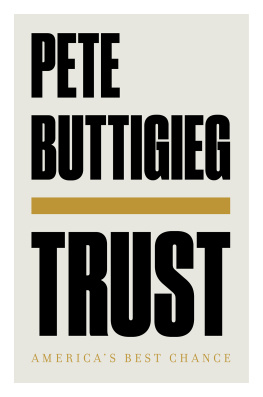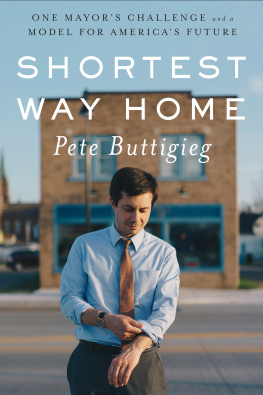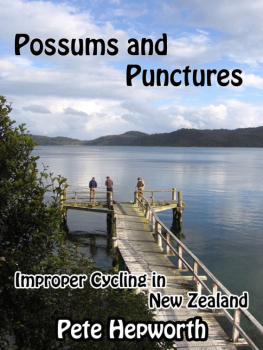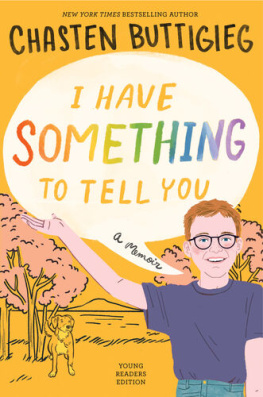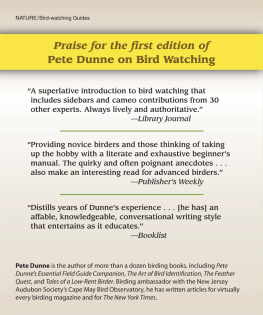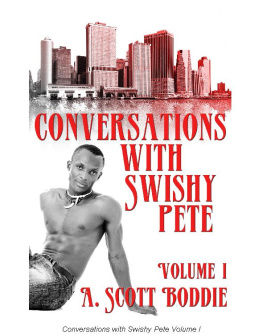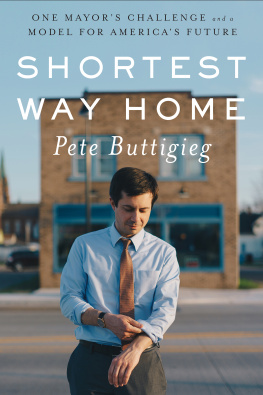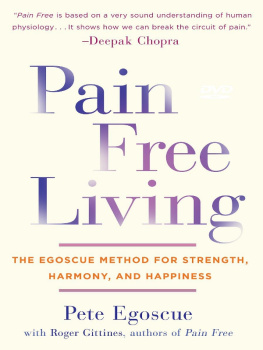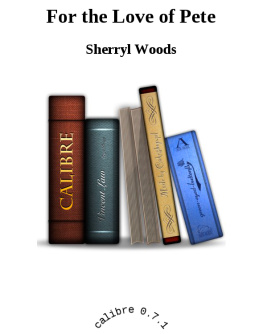Pete Buttigieg - Trust
Here you can read online Pete Buttigieg - Trust full text of the book (entire story) in english for free. Download pdf and epub, get meaning, cover and reviews about this ebook. year: 2020, publisher: Liveright, genre: Politics. Description of the work, (preface) as well as reviews are available. Best literature library LitArk.com created for fans of good reading and offers a wide selection of genres:
Romance novel
Science fiction
Adventure
Detective
Science
History
Home and family
Prose
Art
Politics
Computer
Non-fiction
Religion
Business
Children
Humor
Choose a favorite category and find really read worthwhile books. Enjoy immersion in the world of imagination, feel the emotions of the characters or learn something new for yourself, make an fascinating discovery.
- Book:Trust
- Author:
- Publisher:Liveright
- Genre:
- Year:2020
- Rating:4 / 5
- Favourites:Add to favourites
- Your mark:
- 80
- 1
- 2
- 3
- 4
- 5
Trust: summary, description and annotation
We offer to read an annotation, description, summary or preface (depends on what the author of the book "Trust" wrote himself). If you haven't found the necessary information about the book — write in the comments, we will try to find it.
Trust — read online for free the complete book (whole text) full work
Below is the text of the book, divided by pages. System saving the place of the last page read, allows you to conveniently read the book "Trust" online for free, without having to search again every time where you left off. Put a bookmark, and you can go to the page where you finished reading at any time.
Font size:
Interval:
Bookmark:

Trust
AMERICAS BEST CHANCE
Pete
Buttigieg

LIVERIGHT PUBLISHING CORPORATION
A Division of W. W. Norton & Company
Independent Publishers Since 1923
Trust
D RIVING SOUTH ON STATE ROAD 933, PAST A freshly mowed green field where my high school once stood, as I make my way home from an errand, my eye falls on a sign marking the city limits. I chuckle when I realize that in two terms as mayor, I never got around to having it changed.
WELCOME TO SOUTH BEND: BUILDING A 21ST CENTURY CITY
blares the handsomely painted board, with the name of the new mayor under it, where mine used to be. The signand a few like it on various corridors into townwas put up under my predecessor, and it made good enough sense then: when he took office, it was still the tail end of the twentieth century, and invoking the century to come meant looking forward, celebrating innovation. But by the time I took office in 2012 it aroused more of a humorous responseit made you wonder what was taking us so long. I think that in the eight years I served, we really did place our city, here in the middle of so-called flyover country, on the cutting edge of innovation, and moved on from countless outdated practices and habits; but the crush of priorities and urgent problems meant that we never replaced the motto on that sign. Now, in a city I love, one that embodies all the promise and heartache of this particular era, I wonder if we had better leave it up, and see how it feels to contemplate the mention of our current century, ten or twenty or forty years from now.
As of 2020, the whole idea of the twenty-first century in America is much darker to contemplate than it was in 1999, at the turn of the millennium. We got off to a rough startan opening decade that kicked off with an era-defining act of terrorism, and ended in financial collapse and devastation for millions of households. The following decade began with a real if unequal economic recovery, and a sense that the country might have conquered some of its worst racial demons with the historic election of a Black president. But that breakthrough had a backlash, and the backlash led to the Trump presidency. And then this, the already dizzying third decade of the twenty-first century, began in anguish and chaos: first with a historic impeachment that quickly became an afterthought, then a wave of national and then global protest in the wake of police killings of unarmed Black men and women, and simultaneously a colossally mismanaged response to a deadly global pandemic. So far, this young century of ours has a lot of explaining to do.
Few can doubt that these events will be remembered as a tipping point for our country; we just cant say for sure which way it is tipping. These circumstances have made it daunting to write anything at all. But Trust is not a sweeping account of how we got here, or a full assessment of what it is to be alive and American in 2020. Volumes have been, and will be, written about that. Rather, this book is written in the spirit of what must come next. With all we have been through, we have come to a point so pivotal, so decisive, that it is nearly impossible to describe without falling into some kind of clich. (Defining moment? Fork in the road? Critical juncture? Take your pick.) The decisions soon to be made by our society and our leaders at every levellocal, state, and federalwill set the tone for a decade that is itself going to be decisive.
I believe events have primed the 2020s to be a decade that determines our future. It will be in these years that we succeed or fail in advancing racial and economic justice, in stopping the worst effects of climate change, and in repairing the standing of our country around the world. The choices we are about to make will reverberate for the balance of the century. These years will either generate a vision for a new American social democracy as wide-ranging and imaginative as the work of the New Deal and the Civil Rights Era combined, or solidify the trajectory of an American decline that would itself be the story of the century, almost certainly to the detriment of liberal democracy throughout the world.
I am hopeful. This country possesses deep reserves of courage and imagination, and I believe that it remains fully capable of great change. My own experience in office and in politics, and that of my once-disregarded city, prevent me from joining the ranks either of the cynical or of the nave, when it comes to the American project. To love a country, as to love a person, is to love a flawed and exquisite creation, to see what is best in it, to be angry when it is not what it could be, precisely because you have seen glimmers of its greatness. Such immanent love will motivate and constrain us as we decide, in the years ahead, what must change profoundly and permanently, and what must be preserved or restored.
In the years ahead, I expect my political party, and eventually both political parties, to apply themselves toward creating this decisive change. It will require sustained energy, imagination, controversy, and hope. We will have to examine the basic definitions of words and ideas we have, often unthinkingly, thrown around our whole lives: democracy, equity, freedom, America. We will have to decide which approaches we wish to emulate from abroad, which structures we wish to dismantle from before, which strategies we wish to retrieve from our past, and which institutions we may need to fashion completely anew. For all the peril of this moment, for all the political division and racial anguish and institutional erosion, this moment is filled with possibility.
If we do meet this moment, the next decade will give rise to a range of laws, policies, schools of thought, strategies, perhaps whole disciplines, built to help re-center our national life on new and better terms. Some will fail, some will be hugely consequential. Leaders are proposing ways to include restorative justice both in individual criminal cases and in a possible process of national reckoning. Theorists are reimagining monetary economics in ways that challenge assumptions popular on both sides of the aisle, and communities are experimenting with approaches to guaranteed income. Advocates are laying out new visions in every area of life, from public safety to climate-friendly soil management. Societys understanding remains limited when it comes to our own creations of information technology, which remain in their fruitful and dangerous adolescence, but whole new fields of study and policy are emerging in the quest to better grasp their dimensions.
Taken in that context, Trust is a modest contributiona signpost more than a road map. Its purpose is to suggest that we pay more attention to the central role of trust. Our countrys ability to meet this moment depends not only on the wisdom of our policies or the justice of our ideals, but on our ability to cooperate to achieve anything at all. And that will largely depend on our levels of trust. I believe we face a threefold crisis of trust in this country. Americans distrust the institutions on which we depend. Increasingly we distrust one another. And the world trusts America less than perhaps it ever has. Whether we rebuild that trust will determine whether we can build a better future.
There is a large and wide-ranging popular and academic literature on the subject of trust, political, social, international, and otherwise. It ranges from psychological research to philosophical inquiry to social science analysis to business advice, and even self-help. I will not attempt to survey all of this literature in this book, though I will consult it every now and then. My approach here is more personal, and political.
Next pageFont size:
Interval:
Bookmark:
Similar books «Trust»
Look at similar books to Trust. We have selected literature similar in name and meaning in the hope of providing readers with more options to find new, interesting, not yet read works.
Discussion, reviews of the book Trust and just readers' own opinions. Leave your comments, write what you think about the work, its meaning or the main characters. Specify what exactly you liked and what you didn't like, and why you think so.

